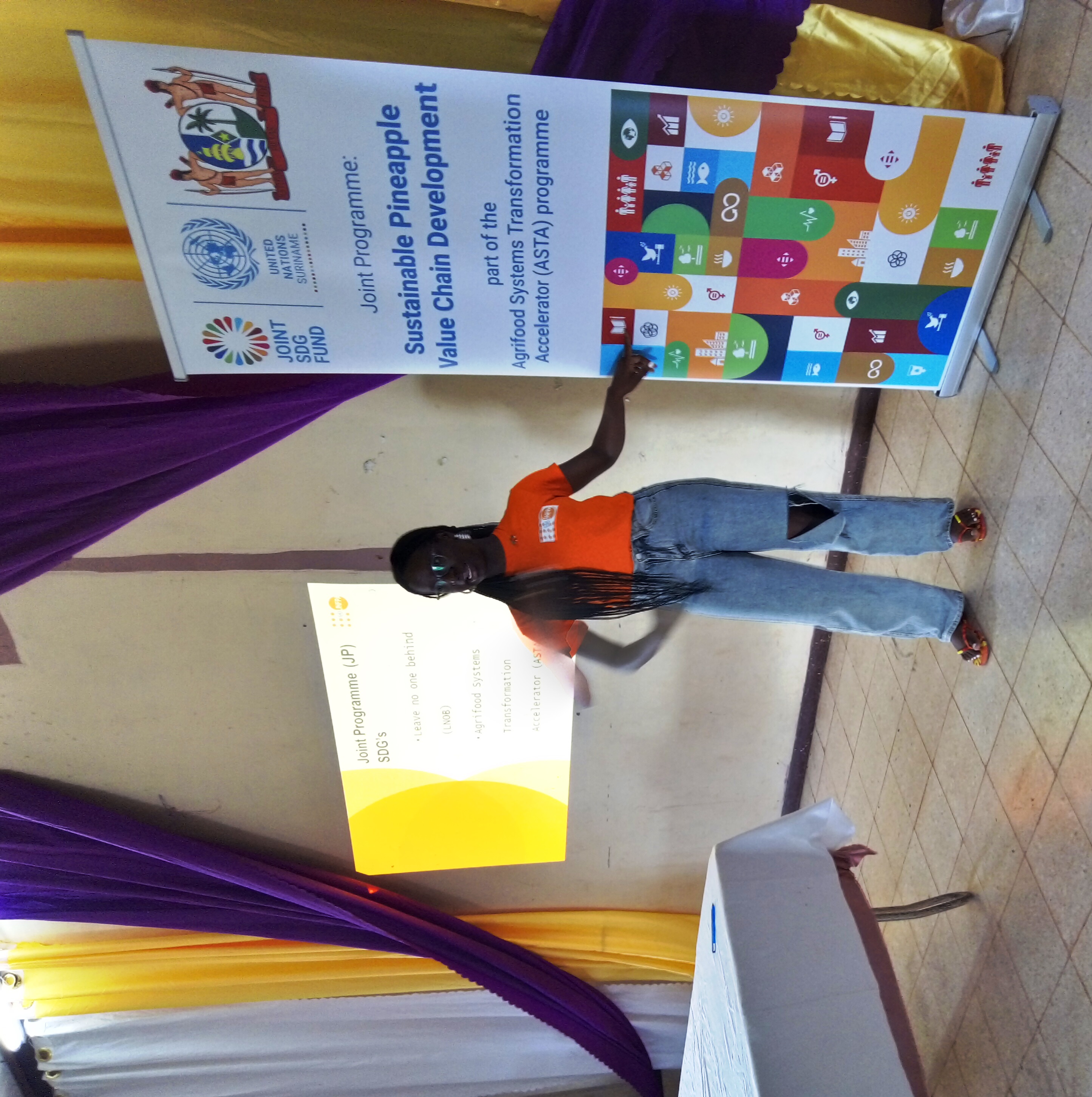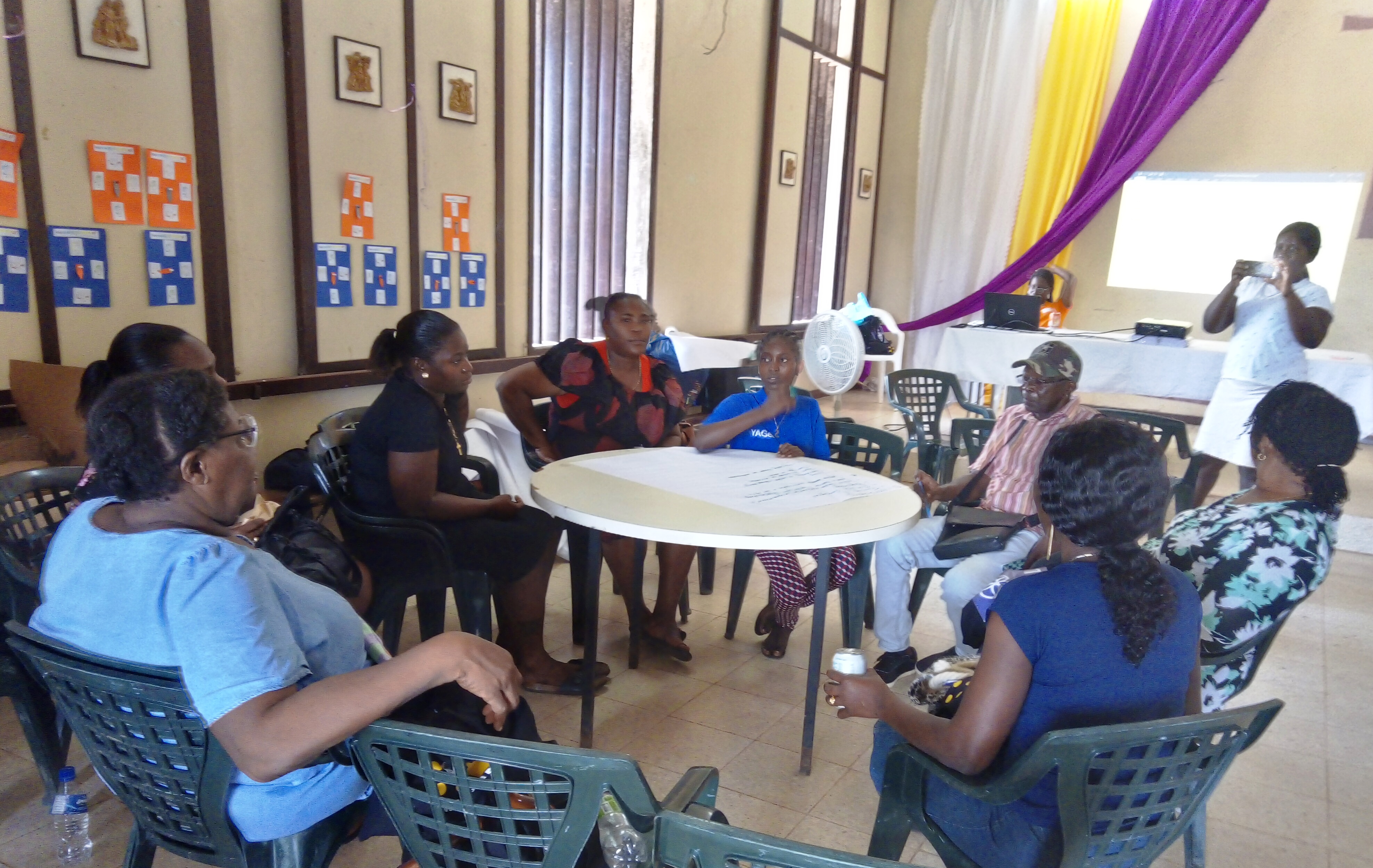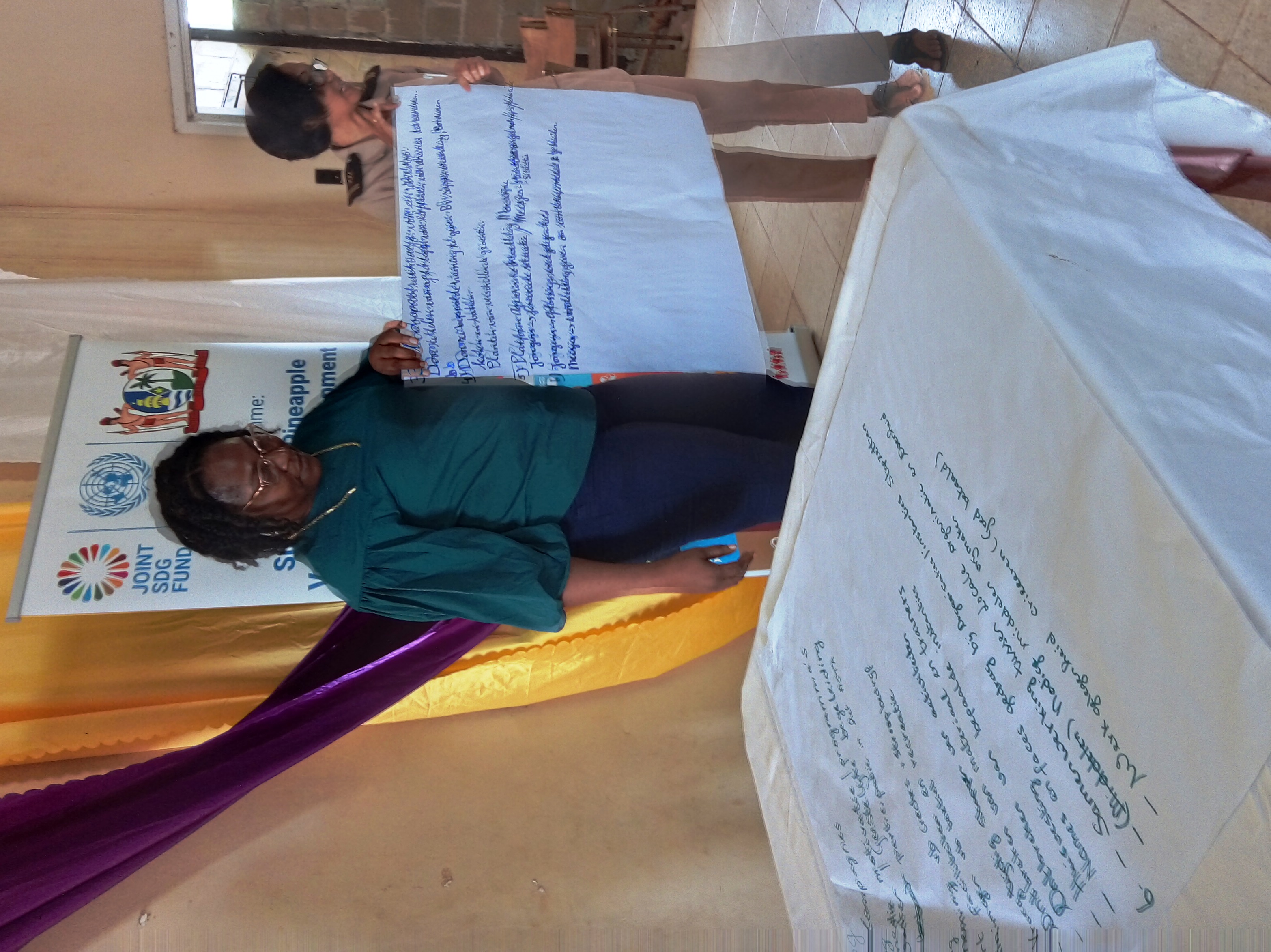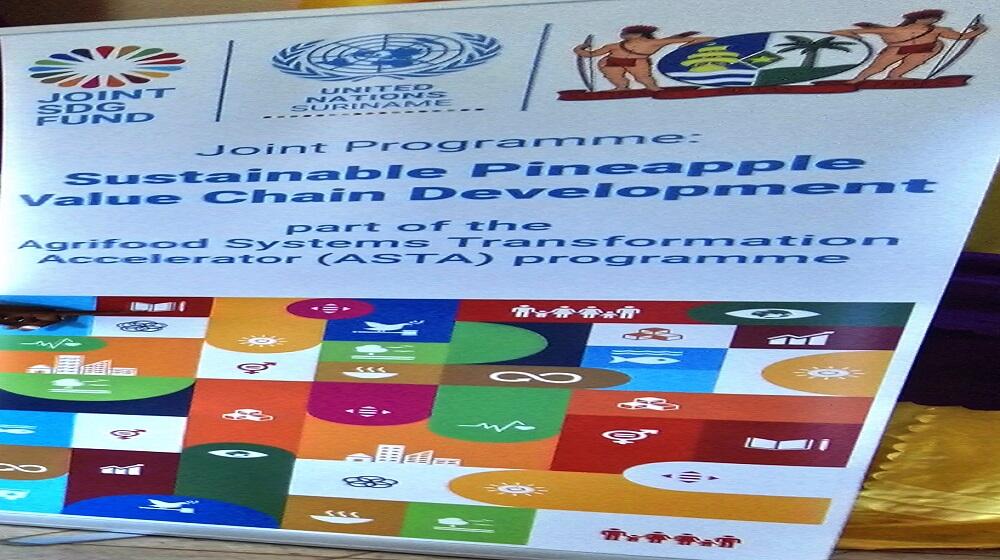In February and March 2023, the Agrifood Systems Transformation Accelerator ASTA project hosted a series of capacity-building training sessions in Matta, Redi Doti and Marowjine, Suriname.. The aim was enhancing farmer’s skills and knowledge of good pineapple production practice. However there was also an inception workshop on Gender, which was a timely and important step towards creating a more equitable and sustainable pineapple sector that benefits all stakeholders, especially women.

The agronomic sessions were conducted by FAO's International Agronomist, Mr. Freddy Gamboa Quiros, with the support of Mr. Swami Girdhari, Pineapple Value Chain Coordinator, and Ms. Hemwatie Goeptar, Farmers, young people, and local leaders from Moengo, Pierre Kondre, and Matta learned about the phases of producing organic liquid fertilizer using Mountain Microorganism (MMs). The session was informative and practical, setting the farmers up for success. Ultimately, it should contribute to enhancing soil fertility and increasing the yield and quality of pineapples in the Para and Marowjine districts.
Following the agronomic Mountain Microorganism training, sessions facilitated byUNFPA, focused on the Gender Capacity Building Plan that will be implemented throughout the project's lifetime. Those sessions provided participants with information about the UNFPA”s work and mandate. They were also provided with information aimed at increasing community awareness of gender and gender equality, cultural identity in relation to spirituality, gender-based violence (GBV) and the Prevention of Sexual Exploitation and Abuse (PSEA).

The inception workshop was highly participatory and provided a platform for women to network, share experiences, and voice their concerns and aspirations. The farmers recognized the necessity of the training by giving examples of problems and situations that arise in their community and provided tips on inclusion and the use of the participatory decision-making method for setting up the training days and mobilizing the various target groups. UNFPA and the ASTA project will roll out different training sessions until March 2026.
The United Nations Population Fund (UNFPA) intervention in the ASTA project in Suriname focuses on promoting gender equality and equity, leaving no one behind, and combating gender-based violence. To ensure that women and youth have equal access to the opportunities provided by the ASTA project, the UNFPA has adopted the Free Prior Informed Consent (FPIC) methodology and gender responsive/transformative strategies. Through these approaches, the UNFPA is developing a community engagement strategy and capacity-building programs to empower women, youth, and other vulnerable groups in the pineapple value chain.
The four-year USD 2,2 million project titled Agrifood Systems Transformation Accelerator (ASTA) in Suriname is financed by the UN Joint SDG Fund, run by the Food and Agriculture Organization (FAO), the United Nations Development Industrial Development Organization (UNIDO), and supported by the International Labour Organization (ILO) and the United Nations Population Fund (UNFPA).



